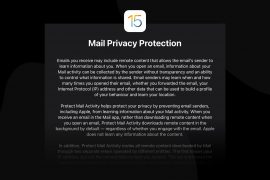So that the sending of your emails work, it is imperative to have up-to-date lists with valid addresses. If necessary, you are likely to end up with a high rebound rate and waste energy (and money) for a campaign that will not reach all its targets. Apart from the syntax, have you already asked yourself whether to put capital letters or not could impact the delivery of your newsletters? It is this question that we answer in this article.
What do we mean by sensitivity to breakage?
Casse sensitivity is a term used in the computer field, designating the ability of a program to distinguish between capital letters and tiny letters. This can apply to email addresses, but also at the search bar, URL, passwords, etc.

Can capital letters hinder the sending of emails?
Yes and no. In fact, it depends on where the capital letter is placed, and the server. As you know, an email address includes two major elements: what is before the symbol “@”, either the local part, and what is afterwards or the domain name.
Local part or username
According to the RFC 5321 protocol, the local part can be sensitive to the scrap, depending on the messaging provider. However, the majority of them accept the use of capital letters. This means that if you write: contact@captainverify.com or CONtact@Captainverify.com, your message should, in most cases, arrive safely.
If you have a doubt, prefer to write everything in lower case when you create a new email address, if only for a question of consistency. An address alternating upper and tiny could induce certain servers in a mistake, but also appear less reliable than an address all in tiny or simply starting with a capital letter. On the other hand, if some of your subscribers have informed an address with capital letters. It is better to leave it as is.
Domain Part
According to the RFC 1035 protocol, the domain part is not case-sensitive. You can therefore use lower cases and capital letters.
For example: contact@CAPTAINVERIFY.com, contact@Captainverify.com and contact@captainverify.com do not make a difference.
What about the use of special characters?
It is unusual to see special characters in an email address. Apart from the fact that this can affect readability and reduce the credibility of the sender, the deliverability can also be assigned to it, because some servers recognize special characters and others not. Their use is therefore to be avoided as much as possible.
To give you an example, Gmail does not authorize the following characters: the esperluette (&), the equal sign (=), the underlining line (_), the apostrophe (‘), the minus sign (-), The Plus Sign (+), the Virgule (,), the Parentheses (<, >) or more than one point (..).
& = _ ' + , ( ) .. { | } ~
Conclusion
In general and except rare exceptions, the main messaging suppliers such as Gmail, Outlook and Yahoo for example, do not take into account the capital letters or the tiny content in an email address. The most important thing is to keep harmony in the address, but especially that it corresponds well to that of your recipient, so that it is properly spelled.
That said, in order to avoid possible confusion, avoid the use of capital letters and special characters. Get a simple address, easily recognizable, because after all, it reflects your business and your identity as a person.







